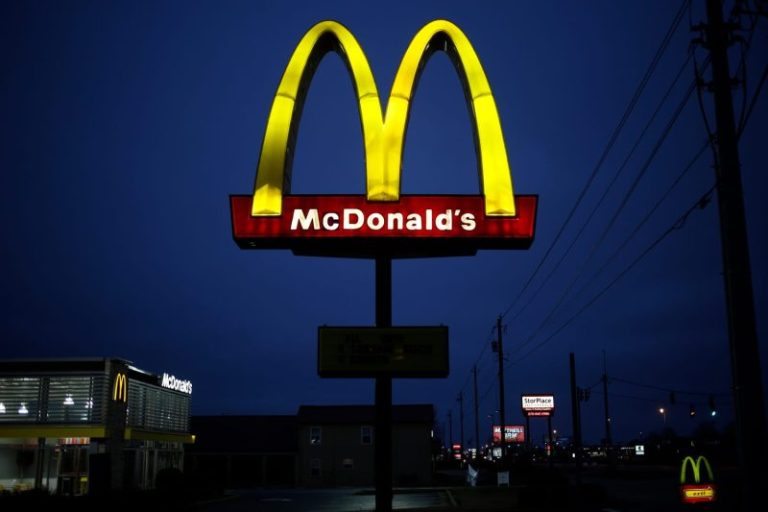McDonald’s ‘$5 Meal Deal’ appears to be bringing back bargain-hungry customers amid broadly higher post-pandemic food prices.
The fast-food giant reported profit and sales Monday that missed analysts’ expectations, acknowledging an industrywide slowdown as consumers eat at home more often and trade down to cheaper items.
And while McDonald’s reputation as a lower-cost option continues to put it at an advantage, it is a shrinking one.
‘Consumers still recognize us as the value leader versus our key competitors, but it’s clear that our value leadership gap has recently shrunk,’ CEO Chris Kempczinski said on an earnings call Monday.
Since the onset of the pandemic in the spring of 2020, overall food prices in the U.S. economy have climbed about 24%, according to the Bureau of Labor Statistics, with food-away-from-home costs surging 27% as restaurants faced higher labor and supply costs.
While McDonald’s weathered the resulting consumer environment as well as anyone, it began to see worsening results more recently as customers’ post-pandemic spending boom waned.
Enter McDonald’s $5 Meal Deal, which includes a McChicken or a McDouble (a double burger with one slice of cheese), a four-piece McNuggets serving, fries and a drink.
Launched in late June — largely before its impact could be reported in the company’s latest earnings report — the offering showed immediate results and was being extended at least through August in most U.S. markets.
‘We’ve seen a lot of enthusiasm, and the number of $5 Meal Deals sold are above expectations,’ McDonald’s U.S. President Joe Erlinger said on the call. While the combo was proving most popular among lower-income consumers, executives said average checks that include the deal have been over $10, which he said showed consumers are using it as an add-on to regular orders.
And from a brand-improvement perspective, Erlinger said, the offering had begun to reset the chain’s perception for value and affordability.
McDonald’s shares rose more than 3% Monday morning.
Companies across the U.S. economy are offering summer discounts to keep consumers spending — a strategy that appears to be working. Amazon just set a Prime Day spending record, and Salesforce tracking of online spending across retailers other than Amazon showed U.S. sales grew 3% as discounts jumped 10% since Prime Day last year.
“You have a heightened level of promotion, heightened levels of discounts, and that makes for a perfect storm where the consumer feels like ‘this is a really great opportunity for me to buy. I’m excited about spending,’” Vivek Pandya, Adobe’s lead insights analyst, told NBC News last week.
Even as inflation has cooled, signs of a struggling consumer continue to mount: According to Philadelphia Federal Reserve data, balance-based credit card delinquency rates were at their highest level in nearly 12 years as of the first quarter this year, though the total number of credit card accounts past due by 30, 60, and 90 days actually declined.
McDonald’s leadership acknowledged that despite the success of its new offering, it still faces an uphill battle as consumers continue to pull back.
‘At the end of the day, we expect customers will continue to feel the pinch of the economy and a higher cost of living for at least the next several quarters in this very competitive landscape,’ Erlinger said.
CNBC’s Kate Rogers and Robert Hum contributed to this article.

